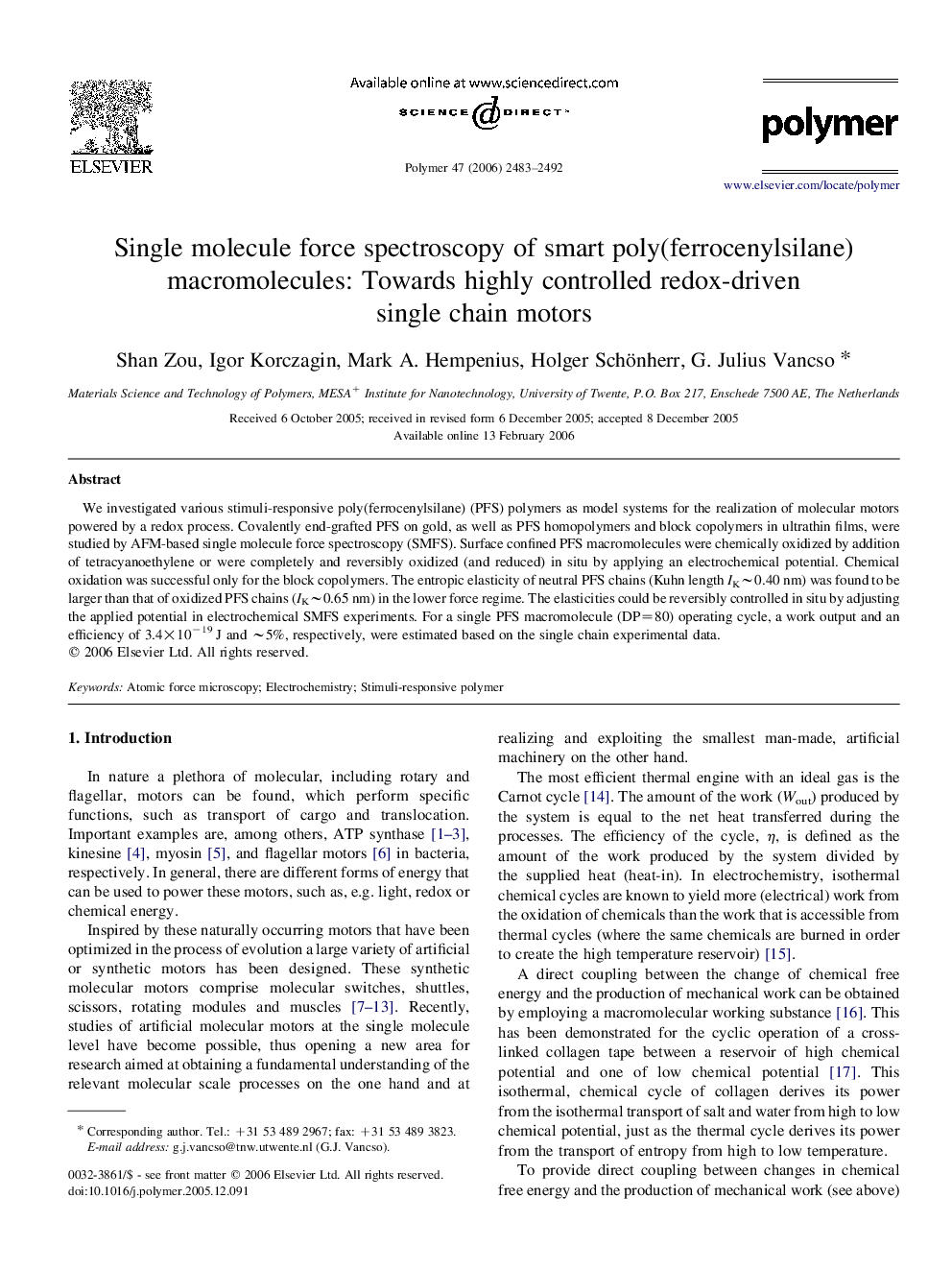| Article ID | Journal | Published Year | Pages | File Type |
|---|---|---|---|---|
| 5190998 | Polymer | 2006 | 10 Pages |
Abstract
We investigated various stimuli-responsive poly(ferrocenylsilane) (PFS) polymers as model systems for the realization of molecular motors powered by a redox process. Covalently end-grafted PFS on gold, as well as PFS homopolymers and block copolymers in ultrathin films, were studied by AFM-based single molecule force spectroscopy (SMFS). Surface confined PFS macromolecules were chemically oxidized by addition of tetracyanoethylene or were completely and reversibly oxidized (and reduced) in situ by applying an electrochemical potential. Chemical oxidation was successful only for the block copolymers. The entropic elasticity of neutral PFS chains (Kuhn length IKâ¼0.40Â nm) was found to be larger than that of oxidized PFS chains (IKâ¼0.65Â nm) in the lower force regime. The elasticities could be reversibly controlled in situ by adjusting the applied potential in electrochemical SMFS experiments. For a single PFS macromolecule (DP=80) operating cycle, a work output and an efficiency of 3.4Ã10â19Â J and â¼5%, respectively, were estimated based on the single chain experimental data.
Related Topics
Physical Sciences and Engineering
Chemistry
Organic Chemistry
Authors
Shan Zou, Igor Korczagin, Mark A. Hempenius, Holger Schönherr, G. Julius Vancso,
